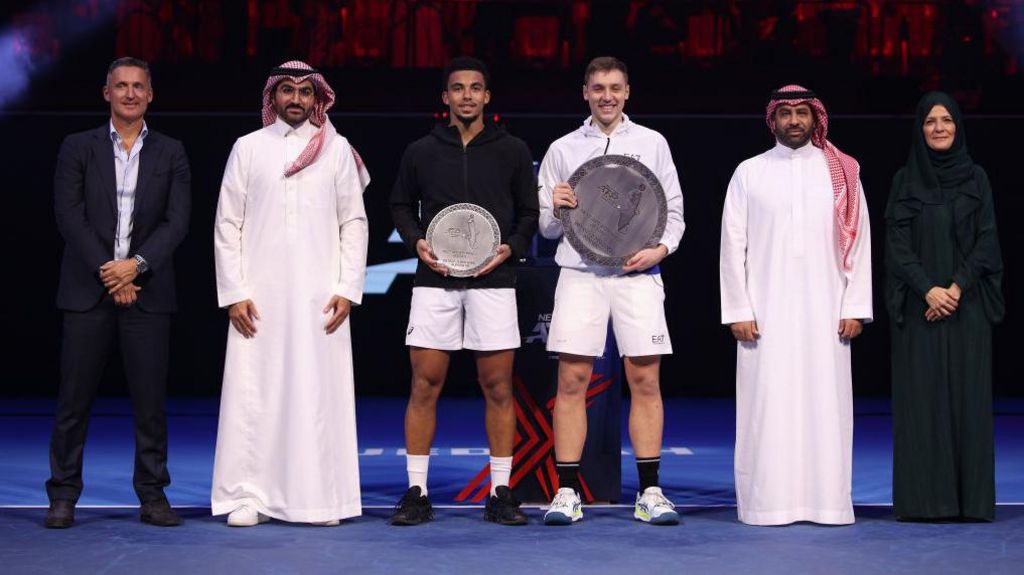Sasa Djordjevic addresses exit from Fenerbahce, living on €500, Serbia's woes / News - Basketnews.com
Former Fenerbahce Beko head coach Sasa Djordjevic spoke about his term with the Turkish team, living conditions in 90s Serbia, and players needing more time for rest.
Credit: D.Repečka/BasketNews Credit D.Repečka/BasketNews
Credit D.Repečka/BasketNews After winning the Turkish league with Fenerbahce Beko Istanbul, Sasa Djordjevic was released by the club. For the Serbian coach, his free agency has given him the chance to spend some time with familiar faces and return to Italy, where he spent a big part of his playing career.
Fenerbahce Beko Istanbul / Schedule
 Anadolu Efes Istanbul
Anadolu Efes Istanbul Fenerbahce Beko Istanbul79-88
Fenerbahce Beko Istanbul79-88 FC Barcelona
FC Barcelona Fenerbahce Beko IstanbulFri19:30
Fenerbahce Beko IstanbulFri19:30"I’m really fine now, I enjoy my time with my family here in Milan, watching basketball and other sports," Djordjevic told Area52 in a Twitch interview.
"But I also started doing some yoga early in the morning. Just 20 minutes, but it really makes me start the day the right way," he added, describing his daily routine.
Djordjevic, 55, took over Fenerbahce in the summer of 2021. Under his guidance, the 2017 EuroLeague champs failed to make the EuroLeague playoffs. As he revealed, his contract with Fener included a special clause that allowed for the deal to be unilaterally terminated in case the team didn't make the playoffs.
"I have no hard feelings against Fener," he clarified.
"I accepted a contract with a clear clause: even if I didn't choose a single player apart from Sehmus Hazer, the club could exit the contract in case we didn't reach the EuroLeague playoffs. I accepted it because I know how important this goal is for the team," he said.
Djordjevic also revealed that whenever he's hired by a team, one of the first things he looks at is how they can beat their main rivals. In the Serbian NT, the team to beat was Spain; in Virtus Bologna, it was EA7 Emporio Armani Milan.
"When I became Serbia NT coach, I said, "Our goal was to win, but first of all to be able to beat Spain. Spain is the most dominant team, it was our goal. I did the same in Virtus: our goal was Milano and we built the roster to be ready to battle it out with them," he pointed out.
Djordjevic thinks that despite the recent failures in the Olympic Qualifying Tournament and the recent EuroBasket, "Serbia is still a basketball country."
3-pointers this season
 41%11,2
41%11,2 Points made:11,2Accuracy:40,9%Place in standings:3Record max:14Record min:6Most made 3FGs:Scottie WilbekinTeamEuroLeagueStatisticsSchedule
Points made:11,2Accuracy:40,9%Place in standings:3Record max:14Record min:6Most made 3FGs:Scottie WilbekinTeamEuroLeagueStatisticsSchedule"We are lacking the results," he underlined. He recalled an incident when he was playing for FC Barcelona in the late 90s, and president Salvador Alemany had only one thing in mind before the club entered the 1998-99 campaign: to win the competition they were playing in.
"We were playing the Korac Cup instead of the EuroLeague. President Alemany told us, "For Barca, it's not prestigious to play a competition, it's prestigious to win it. And we won it."
Recently, FC Barcelona coach Sarunas Jasikevicius said, "If I could play with five guards, I would. They are players who know how to manage the team and make decisions," the Lithuanian coach explained.
Djordjevic, a prodigious guard in his heyday, has no reason to disagree.
"Warren Buffett said that the 3 most important things when you buy a house are: location, location, location. Sasha Djordjevic says that in basketball the 3 most important things are: guards, guards, guards. Games are in their hands and in their minds," he concurred.
The experienced play-caller remembered his early days at Partizan, when the Serbian team won the EuroLeague in Istanbul in 1992. Those were difficult times for Serbian people, and professional athletes were no exception.
"In the season we won the EuroLeague, I was earning like today's 500 euros per month. If I went out for a pizza 3-4 times a month, considering the fuel for the car, I was done. But staying in the gym with Obradovic and Aza Nikolic was priceless," he stressed.
Djordjevic also touched on players' load management. He said that's an issue he's discussed with ELPA managing director Bostjan Nachbar.
The Serb doesn't think players need more rest. "They need to work and prepare more for the games. Players like to work less and play more games, but it's the wrong way. Training and studying the game is a key," he maintains.
He even brought up an incident to illustrate how players choose their comfort zone: a new haircut could be helpful.
"When players do things like that, it's because they are looking for their comfort zone,' Djordjevic contends.
"I had Julian Gamble, his head was like a pineapple. One day he cut his hair and asked me, 'Do you like it, coach?'. I told him, 'Very cool, Julian. Now you can hit some free throws.'"
Support BasketNews so we could make even better content.Link to this article:https://www.brazilv.com/post/11820.html







